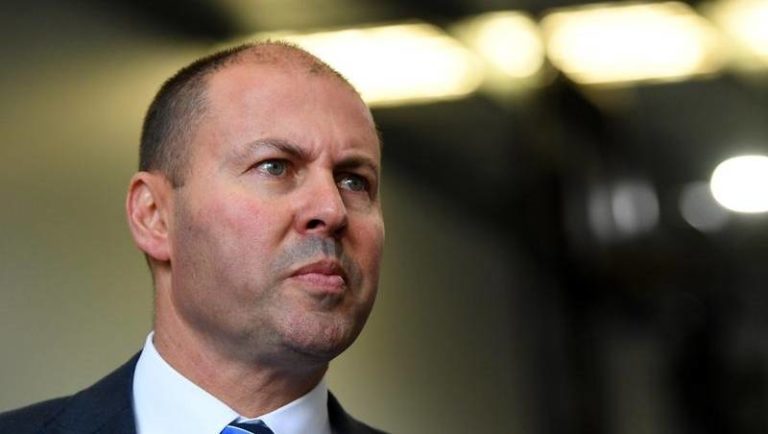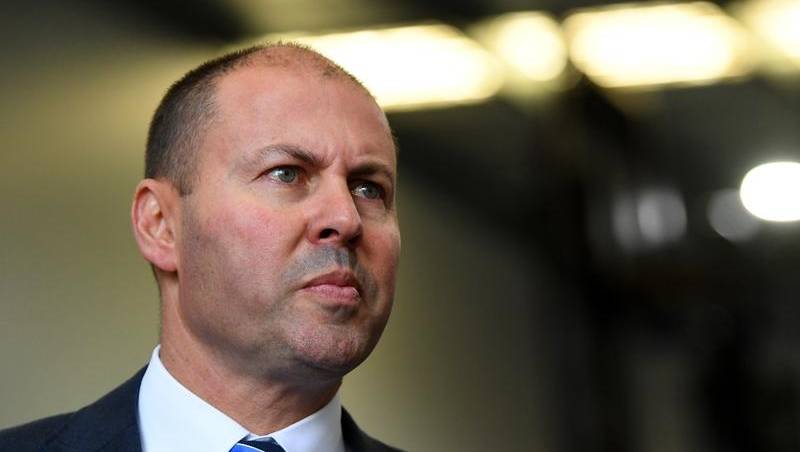Treasurer Josh Frydenberg lays out next phase of economic plan, while admitting our children will be paying off the biggest deficit since WW2 for years to come.
The country is already in the red by $85.8 billion, with predictions that will blow out to reach a record $184.5 billion in the 2019/2020 financial year.
They’re numbers few have seen in their lives, with a record-breaking deficit rivalled only by what Australia faced in the 1940s.
While not putting any estimate on when he expected the deficit to be paid, Josh Frydenberg said there was no denying it would burden Australians for years.
“Certainly this debt burden will be with you, with me, with our children in the years ahead,” he said.
“It is just the harsh reality of what we are doing.”
“Businesses have closed, family dream shattered – i’s not right, it’s not fair. But it is our harsh reality.”
The unemployment rate is already at 7.4 per cent, but is expected to peak at 9.25 per cent at some point in the next year.
That’s bad news for WA especially, which has always been one of the States with the highest unemployment rates comparative to others.
Right now, WA’s unemployment is sitting at 8.7 per cent.
The next step in recovery
Despite huge job losses and an “eye watering” debt, Mr Frydenberg said COVID-19 would not break the Australian economy or its people.
“It is our resolve and resilience that will see Australians through,” he said.
“Two World Wars and a Depression didn’t bring Australia to its knees and COVID will not either.”
The first two cabs off the rank for economic recovery, according to Mr Frydenberg, would be industrial relations and tax reform.
“These opportunities (to recover) will not be fully realised unless we deal with our inflexible industrial relations system,” he said.
“The temporary industrial relations changes we have made in response to the crisis have been absolutely critical to keeping more people in work… These temporary changes have shown us how big an impact a more flexible system can have.”
Those flexible work arrangements include employers being able to cut hours of employees, including full timers, all the way down to zero if they so choose.
Also, they can change an employees’ duties, shifting their ‘job’ to whatever the business needs it to be at a given time.
Shadow Industrial Relations Minister Tony Burke raised the alarm that the Government was using the pandemic to permantly change working arrangements and leave workers worse off.
The other main point on Mr Frydenberg’s agenda was tax reform.
“The pathway to recovery is not through higher taxes but through a more competitive and efficient tax system that supports jobs and promotes investment,” he said.
Mr Frydenberg said he was discussing tax reforms with State and Territory Premiers who “all recognise there is a need and opportunity for reform”.
“Our principles are agreed,” he said.
“We are all in favour of tax reform that delivers a simpler complex area with many moving parts.”
Pushing for a baby boom
Mr Frydenberg said population growth would slow in coming years because of closed borders that prevented the same level of migrants coming into the country.
However, Treasury projections also expect the birth rate to drop, a trend often seen during tough economic times.
“Population growth (is) effectively being halved,” he said.
“That take into account the migration levels but also the fertility rates.”
While not going as far as former Treasurer Peter Costello with his baby boom campaign and slogan “have one for the mother, one for the father and one for the country”, Mr Frydenberg did urge prospective parents not to be put off having kids.
“People should feel encouraged about the future and the more children that we have across the country, together with our migration, we will build our population growth and that will be good for the economy,” he said.
“I think the best thing that we can do to encourage more children being born across the country is obviously to create a strong economy for them to be born into.”
Further Australia and Perth COVID-19 news coverage on SoPerth.com.au.













